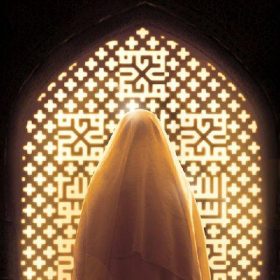“The first wife of the prophet Mohammed; Khadijah was a successful business women in her own right who controlled one of the most important caravan trade routes in the region. She was the first Muslim Woman and believed in Mohammed before he believed in himself.
Not only was she an extraordinary woman in her own right: strong, successful in business, a mother, spiritual – but she also defies and refutes so many of the stereotypes of women in Islam that people hold today.”
Table of Contents
ToggleMuhammad’s first wife KHADIJA, the first Muslim woman
The Mother of Islam, Khadija was the first wife of the Prophet Muhammad and is a shining example of a strong, independent Muslim woman with an entrepreneurial spirit. She was born in Makkahin in 556 CE. Her father was a prosperous businessman and a popular leader of the Quraysh tribe.
Her first marriage left her a widow; and following the end of her second marriage Khadijah turned down numerous proposals from wealthy men, expressing little desire to marry again. She instead focused on her children’s upbringing and began building the merchant business she had inherited from her father.
Khadija did not travel with her trade caravans. Instead, she employed agents who would trade on her behalf for a commission. In 595, she employed her distant cousin Muhammad ibn Abdullah as an agent.
Prophet Muhammad was just 25 years old, but had already earned a good reputation as a trustworthy man, which led Khadija to offer him double her usual commission. She was rewarded well for this when Muhammed brought back twice as much profit as Khadija had expected.
This happened before the revelation. When in 610 Muhammad received the first revelation from the Archangel Gabriel, he returned home confused and distressed, and decided to tell Khadijah about it. After listening to him –and, more importantly, believing him–she calm him down and took him to consult with her cousin Warqah ibn Nawfal, a hanif, or believer in monotheism and knowledgeable of the Christian tradition.
At the time, Muhammad feared he was possessed by a jinn. It was Waraka who explained him that the angel in question was not a demon, but Jibril (Gabriel), the same archangel who came to speak to Moses.
From that moment on, the revelations to the Prophet Muhammad continued. Thus, as told in The Chronicles of Tabari, the first person in History to convert to Islam was Khadijah.
In the Islamic tradition, Khadija is considered and appreciated for the important role she played in supporting the Prophet and in his fight against his enemies.
In one of the Kutub al-Sittah (original books of compilation of hadith, or sayings and acts attributed to Muhammad), the Sahih Muslim, the following hadith about the Prophet’s wife can be read:
“Allah granted me no better wife than she: she had faith in my Message when people rejected it. She believed in me when people called me a liar. She shared her wealth to ease my grief when people abandoned me. And she gave me, by the grace of Allah, the progeny that no other wife could give me.”
Year of Grief
Khadijah came out of the mountain pass of Abu Talib physically weakened. She became sick, and her beloved husband and daughters cared for her, consoled her, and alleviated her suffering to the best of their ability.
But as Allah would have it, no remedy or cure was able to heal her, and she finally surrendered her soul and left for the Highest Company. She died amid the tears of her daughters and the sorrow of their great father, the noble Messenger, over his companion, life partner, and solid support.
Her death was one of the saddest experiences of the Messenger of Allah, to the extent that the year of her death was called the year of grief.
Today Khadijah, who is also known as “the mother of the believers”, still holds a special place in the hearts of Muslims, so much so that the year of her death (619) is known as the “year of sorrow”.

